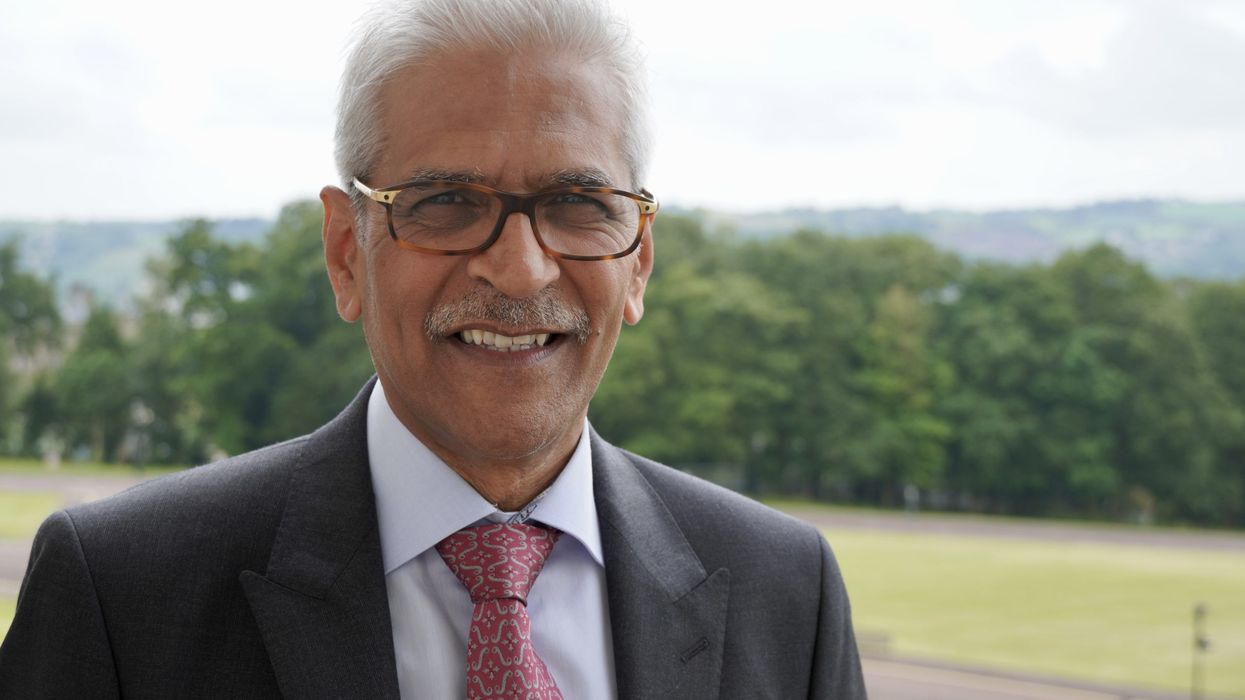Celebrating South Asian Heritage Month, Mahendra Patel reflects on how his cultural roots have shaped his pioneering work in culturally tailored healthcare, bridging the gap between diverse communities and effective care
"As I look back, I continue to believe it is my cultural beliefs and upbringing through my Asian heritage that has positioned me where I am today and has given me a unique professional journey that I couldn't have scripted," reflects Professor Mahendra Patel, a leading figure in the UK's pharmacy profession and research academia.
As Director of the Centre for Research Equity at the University of Oxford and a member of the new UK Independent Pharmacy Professional Leadership Advisory Board(UKPPLAB), Dr. Patel OBE is a prominent voice in the intersection of healthcare and cultural diversity.
His work emphasises the importance of tailoring healthcare approaches to meet the unique needs of diverse communities, particularly those from South Asian backgrounds.
Born in the UK to Indian parents, Patel's journey is deeply rooted in the values instilled by his heritage.
"It is the Indian culture of putting education above all else that influenced me to work hard at school, get to university, and become the first in my family to obtain a degree," he recalls.
These values of hard work, honesty, and fairness have been constants throughout his career, guiding him to where he is today.
Patel's professional journey is a testament to the power of cultural sensitivity in healthcare innovation.
His work spans over a decade, bridging the gap between healthcare systems and the diverse needs of South Asian communities.
He has been instrumental in raising awareness about the higher risk of cardiovascular disease and type 2 diabetes, conditions that are preventable with the right interventions, in these communities.
"From very early in my career, I have been helping to raise awareness of the higher risk of cardiovascular disease and type 2 diabetes in South Asian communities—both of which can be prevented," says Patel.
His efforts have led to significant improvements in how pharmacy services are perceived and utilised by South Asian populations.
Healthcare and representing minority community
At the University of Oxford, Patel focuses on promoting inclusivity in health research, ensuring that minority communities are adequately represented.
One of his key achievements is the development of culturally tailored health education programmes, such as community outreach projects and resources for managing health conditions like diabetes during Ramadan.
These initiatives have set new standards for how healthcare providers engage with South Asian populations.
His work also extends beyond the UK. Patel has developed health education programmes across many states in India, driven by a desire to give back to the country that has profoundly influenced his life.
"Over the years, I've become increasingly gravitated towards India for various reasons, personal and professional," he shares.
"It's almost my way of giving back to India what it has given to me and others through its culture, values, and upbringing."
His initiatives have not only improved health outcomes in South Asian communities but have also demonstrated the importance of cultural competence in healthcare delivery.
"Understanding the heterogeneity within the South Asian diaspora is crucial," Patel emphasises.
"It’s about recognizing the complexity and diversity that exists and responding with tailored, culturally appropriate solutions."
Patel's contributions to pharmacy and healthcare have been widely recognised, from his work with the British Heart Foundation to developing award-winning strategies for equitable research.
One notable project was his leadership in creating a national toolkit for pharmacists to support safe fasting during Ramadan, which was featured on BBC Television.
Embracing opportunities
Looking ahead, Patel stresses the need for focused investment in the pharmacy profession.
"Pharmacists and pharmacy technicians must be better supported to engage with their communities effectively," he advocates.
"This includes developing outreach programmes tailored to the cultural beliefs, attitudes, and experiences of different communities."
For aspiring pharmacists of South Asian heritage, Patel's advice is clear: "Embrace the opportunities, aim for excellence, and view your career not just as a job, but as a vocation.
"The impact you can have on patient care and the community is immense and can be deeply rewarding."
Patel's work is a powerful reminder that in an increasingly globalised and multicultural world, understanding the nuances of different communities is crucial for any business or organisation.
His journey underscores the importance of inclusivity and equity as drivers of innovation and success in healthcare.












